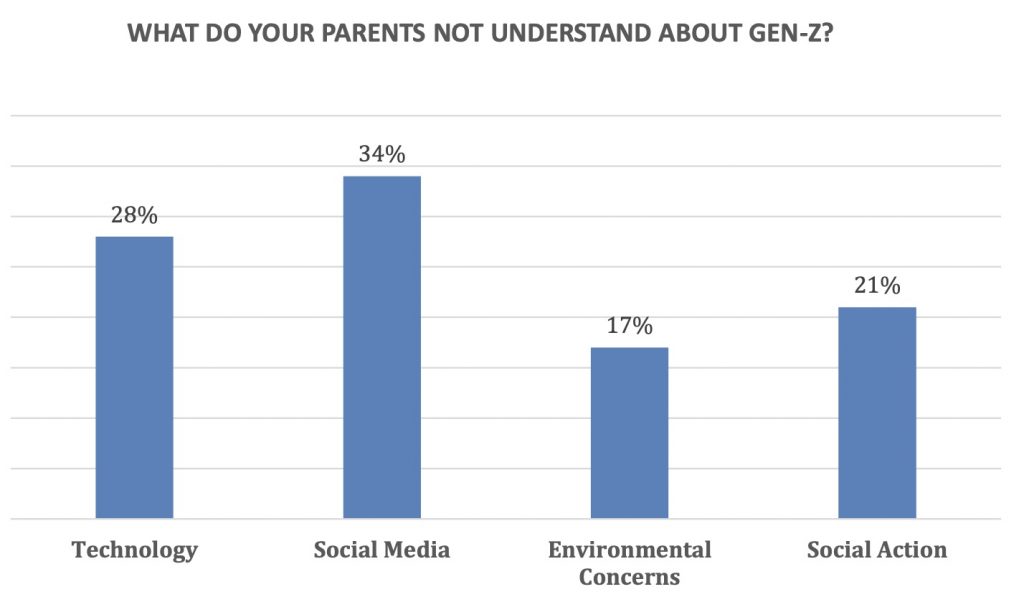
Contributed by Manole Capital Management
Manole Capital Management is a boutique asset manager based in Tampa, FL that exclusively concentrates on the emerging FINTECH industry. Manole Capital defines FINTECH as “anything utilizing technology to improve an established process.”
For the last three years, Manole Capital has asked its interns to conduct research on the Gen-Z demographic, in four key financial services. Research has inquired about Gen-Z’s perspective on digital currencies, brokerage, banking, and the payments industry. This prior research can be viewed by visiting www.manolecapital.com/research.
In 2021, three interns from the University of Tampa (Go Spartans!) have conducted Manole Capital’s 4th Annual Financial Services Survey. Andrew Yang garnered significant name recognition during his presidential bid and now he is running as a New York City mayoral candidate. Last month, Yang said he was “depressed” after a Goldman Sachs executive told him that it was opening a branch office in Tampa. In a Bloomberg News interview, Yang said “it’s a depressing story” that NYC is seeing businesses and talented workers move elsewhere and that “we are losing people to Tampa”.
We received insights from over 350 participants, with 91.1% under the age of 25. 37% of our responses were female and our surveyed population came from 51 different colleges and universities. This has been the largest financial services survey ever conducted by Manole Capital, as well as the most international, with respondents coming from 13 different countries.
Our goal was to better understand the Gen-Z financial services perspective, as well as provide opinions on current trends. We changed some of our questions to address the global pandemic and how COVID_19 might impact the financial services sector. We seek to identify the latest trends and changes regarding our four financial services topics.
Our research targeted towards Gen-Z to get a glimpse into what the future of FINTECH may hold. Gen-Z represents the future of our workforce and this their views and opinions will have a meaningful impact on our economy for decades to come. After each section of Q&A, we plan on providing our opinion and some specific takeaways.
By the Numbers:
- The Silent Generation was born before 1945 and are between 75 and 92 years old
- Baby Boomers were born from 1946 to 1964 and are between the ages of 56 and 74 years old
- Gen-X’ers were born between 1965 to 1980 and are now between 40 and 55 years old
- Millennials were born between 1981 to 1996 are between 24 and 39 years old
- Last but not least, the Gen-Z cohort was born after 1996 and are all under 24 years old
For the last decade or two, Baby Boomers have dominated our economy. More recently, Millennials have overtaken Baby Boomers in the US work force. According to the US Census Bureau chart shows, Gen-Z will be 1⁄2 of the workforce by 2040. Over the next decade, Gen- Z will take over our economy.
Here we briefly describe the characteristics of teach generation to get an understanding of how their underlying traits could have shaped the way financial services have been conducted up until now.
Having childhoods that pre-date modern technology, Baby Boomers value personal relationships and have strong interpersonal skills. With the invention of cell phones and computers, Baby Boomers were forced to adapt and learn new technology quickly. Some have, but some are hesitant to acclimate to the driving force of today’s social society. Baby Boomers are often characterized as optimistic, idealistic, self- driven and have shown a tendency to be loyal. For example, studies show that Baby Boomers spend an average of 15 years at their bank or brokerage. After years of climbing the corporate ladder, many are now exiting the workforce and enjoying retirement and sharing time with their family.
Gen X is sometimes referred to as the “lost generation”. Some had two workaholic parents and others were raised by single or divorced parents. Because of this, Gen X tends to place more emphasis on a balanced work / life co-existence. Often, Gen X’ers have more individualistic ideals and are often self-sufficient, skeptical, and resourceful.
Having been the first generation to master modern technology, Millennials are successful and driven. However, some have become too dependent on technology and interpersonal skills have suffered. As opposed to being raised by authoritative Baby Boomers, Millennials have been raised by Gen-X’ers that sometimes view parenthood as a partnership. Accordingly, Millennials were given leeway and leniency, paving the way for some to display a degree of selfishness and the desire to have everything, without much in return.
Gen-Z:
Other than having been born with technology in our hands, not much is known about Gen-Z. With a maximum age of only 25 years old, Gen-Z is just now entering the workforce.
Many generations are influenced by the major events of their lifetime. With the oldest Gen-Z at age 25, most are too young to remember the September 11th terrorist attacks or understand the ramifications of the Financial Crisis.
Gen-Z is described as ethnically diverse, socially aware, environmentally responsible, eager to stand out and technologically savvy. Everybody knows we appreciate a good selfie or food pic, right?
We believe the COVID-19 global pandemic is the most influential event Gen-Z has faced and it will have lasting ramifications on our lives. In our research, we try to identify the direction and thinking of the Gen-Z generation and the future of cryptocurrency, banking, brokerages, and payments.
Questions:
Before COVID-19, cash was still the dominant form of payment around the world (estimated at 75% to 80% of retail purchase transactions). Will one of the pandemics lessons be “The Death of Cash”? for Manole Capital’s recent presentation on this trending subject. Following the Financial Crisis, some banks were blamed and considered villains for the financial fallout. Most banks are slow learners and are not considered technology savvy. Can financial institutions learn to adapt? Why is there a bank branch located on every street corner when we effortlessly use online banking services?
Online shopping and eCommerce sales have been stealing market share from brick-and-mortar retailers for years. PayPal’s CEO Dan Shulman recently stated that the pandemic might have pulled forward eCommerce adoption “by a decade.” Has the pandemic created new trends and altered the outlook for the future? Will developing technologies like contactless payments and NFC technology soon become mainstream? Can physical-only retailers survive? In late January, meme stocks like GameStop and AMC dominated Wall Street, as well as the headlines in the Wall Street Journal. Will emerging brokerages like Robinhood steal market share from more established incumbents? Bitcoin soared in 2017, only to collapse in 2018. Last year, Bitcoin rose over 300% and it is continuing to climb in 2021. What does Gen-Z think of digital currencies, and would they like to use them for payments?
These are just a few questions of what we intend to discuss. Do you have a question or two that you would have liked us to ask? Please let us know how we can improve future surveys and research. In assessing the results of the survey, conclusions will be drawn on the future of the FINTECH industry. As Gen-Z becomes of age, their preferences will dominate the world stage. Manole Capital believes it is beneficial to evaluate Gen-Z’s preferences, to better understand future financial services trends. Do you agree or disagree with our opinions? Please let us know your thoughts and we look forward to hearing your feedback.
At the end of the survey, we asked our participants to identify “what older generations just don’t understand about Gen- Z.” We believe that older generations simply do not understand our focus and use of social media. This was the highest percentage chosen. Gen-Z values social media, love sharing experiences with friends and enjoys keeping up with “influencers”. On Instagram, “influencers” can make millions of dollars for their social influence and popularity.
After social media, the Gen-Z surveyed participants thought their parents did not necessarily understand technology and our fascination with it. Social action at 21% and environmental concerns at 17% rounded out the comments we received.
Going forward, Gen-Z will play an increasingly critical role in our society. Older generations may believe these differences are unconventional and progressive, but we believe that understanding different perspectives is critical in adapting to change.
Our research is intended to provide insightful information about the youthful perceptions of Gen-Z. Getting an understanding of Gen-Z’s thoughts on banking, brokerage, payments, and digital currencies can help Manole Capital better understand the approaching trends in financial services. We hope you find our Gen-Z research interesting, beneficial, and insightful.

Brokerages:
Last year, we made the statement that most investors would not consider the brokerage business as being incredibly “fintechy.” This sentiment has certainly changed. With the advent of free trading in 2019, volumes and brokerages have come roaring back. While Robinhood has become a household name, there are other brokerages emerging. A year ago, few would have known about Webull or eToro. Now, the brokerage industry is “hot,” and many consider these firms as wonderful examples of Fintech and transaction-based businesses.
These new brokers have leveraged a simple, yet superior user experience. Besides just commission-free trading, many are employing a quick sign-up process, an easy-to-understand mobile platform, access to market information, and a full array of trading capabilities and strategies. Despite being fairly new to equity trading, many retail investors are embracing options and margin accounts. How are more established and traditional brokers responding? Do they understand the needs and wants of Gen-Z? Are they adapting to today’s environment or are they losing market share to new entrants?
Over the next several pages, we will be providing the results from our 4th annual Gen-Z Brokerage survey. We asked and received answers to 10 specific questions on this topic. After we provide the raw data from our questions, we will attempt to provide some interpretation and insight into the findings. Our goal is to explore what specifically makes these brokerages so attractive to Gen-Z.


Leave a Reply